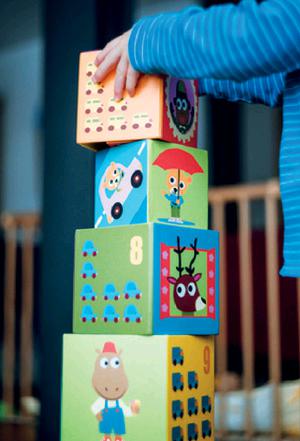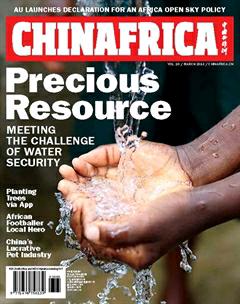Should State-Owned Enterprises Operate Self-Run Kindergartens?
with the arrival of the “two-child era” in China, preschool education has become an even more difficult issue for many Chinese parents. According to the research result of Education Policy Center of Southwest University, with Chinas implementation of the twochild policy in 2016, the demand for preschool education will see a sharp increase from 2019 and reach its peak in 2021.
According to Wang Ning, Vice Mayor of Beijing, in the following three years, there will be about 600,000 kindergarten-age children in Beijing, but at present, kindergartens in the city can only provide seats for around 400,000 children, leaving a massive shortfall.
The Chinese Government is addressing the challenge by providing incentives to kindergartens and increasing enrollment quotas amid a growing need for quality kindergartens and sound preschool education.
In addition, some deputies to the First Session of the 15th Beijing Municipal Peoples Congress and some members of the First Session of the 13th Beijing Municipal Committee of the Chinese Peoples Political Consultative Conference, known as Beijings “two sessions” held in January, proposed that state-owned institutions and enterprises should re-open selfrun kindergartens on site to help address the overwhelming demand. These were operational 40-50 years ago but closed due to lack of demand.
This proposal sparked heated debates in China. Those in favor believe it could effectively resolve the problem of lack of kindergarten spots while others query the validity and quality of this kind of kindergarten.
pros
WEI AIMIN Lawyer of Beijing Modern Commercial Law Firm
In the 1970s and 1980s, it was common in China that many state-owned institutions and enterprises ran their own kindergartens which were available to each child whose parents worked in these institutions. After the 1980s, with the influence of the reform of state-owned enterprises and one-child policy, the demand of these kinds of kindergartens dropped sharply, and eventually fell away. However, now the country is faced with scarce preschool education resources, and as many state-owned institutions and enterprises have land-use rights and original infrastructure, with government financial support, these kindergartens could reopen at a lower cost than opening a new kindergarten.
WANG XIAOyU President of Hanguang Department Store
The lack of preschool education resources, particularly for children up to?three years old, is straining parents who are already under huge pressure from daily life and work. This problem is not only affecting social productivity, but is also jeopardizing the future of the countrys next generation. A child is the focus of each family. If big enterprises could open kindergartens for their employees, it can help give workers a sense of belonging and help them to focus on their jobs without the stress of worrying about their children. For both enterprises and workers, it is a win-win solution.
WANG LAN Principal of Sanjiaosi Kindergarten in Beijing
Kindergartens operated by state-owned institutions and enterprises could take better care of their employees children. In the past two years, the scandals of child abuse in some kindergartens have triggered ongoing public outcries, and aroused a nationwide concern over the quality of kindergartens in China. According to my knowledge, private kindergartens, which house at least 50 percent of the total children eligible in this age group, lag far behind government-run facilities in terms of financial support and other resources. As a result, in the absence of qualified teachers, these kindergartens often hire unqualified staff members; according to the statistics of the Ministry of Education, 22.4 percent of preschool teachers in China have only been educated to high school standard.
If state-owned institutions and enterprises open their own kindergartens, more responsible teachers and the quality of education can be guaranteed, as the institutions and enterprises have stronger financial strength.
cons
ZHU MIN Principal of Beijing 21st Century Experimental Kindergarten
Running a kindergarten needs sufficient funds and operating expenses, therefore, tight budgets will be an obstacle for most state-owned institutions and enterprises to open their own kindergartens. The kindergartens run by stateowned institutions and enterprises charge the same tuition fees as government-run kindergartens, which is quite low compared with private kindergartens; yet despite the availability of government financial support, they are still facing a heavy burden.
In addition, self-run kinder- gartens can hardly satisfy the needs of all workers. Some parents want to send children to attend international kindergartens with a hope of improving their childrens bilingual communication skills. This can help their children go abroad for further study later without a language barrier; it will be hard for kindergartens run by state-owned institutions and enterprises to meet all these requirements.
HAN FENG Director of General Department of China Central Television Channel 14
There is a big problem to open a kindergarten for state-owned institutions and enterprises, namely, the bottleneck of financial auditing. The financial auditing system in state-owned enterprises and public institutions is very strict. How to charge fees from employees and where the money comes from to run the kindergartens are questions needed to be answered if these institutions and enterprises want to open a kindergarten for their employees. Besides, cities like Beijing are big, and enterprise workers often live far from their offices, making it inconvenient to commute long distances daily with young children.
yAO JINGBO CEO of 58.com While the government and society have rushed to build more kindergartens to accommodate the growing toddler population, the question of how to attract and retain qualified professionals to ensure top-quality education is a priority.
Apart from qualified teachers, facilities, housing and suitable courses are all factors to be considered. For state-owned institutions and enterprises, to be professional in preschool education is not an easy thing.
In general, we should let the professional people do the professional jobs.?So for stateowned institutions and enterprises, opening professional kindergartens is unrealistic.

